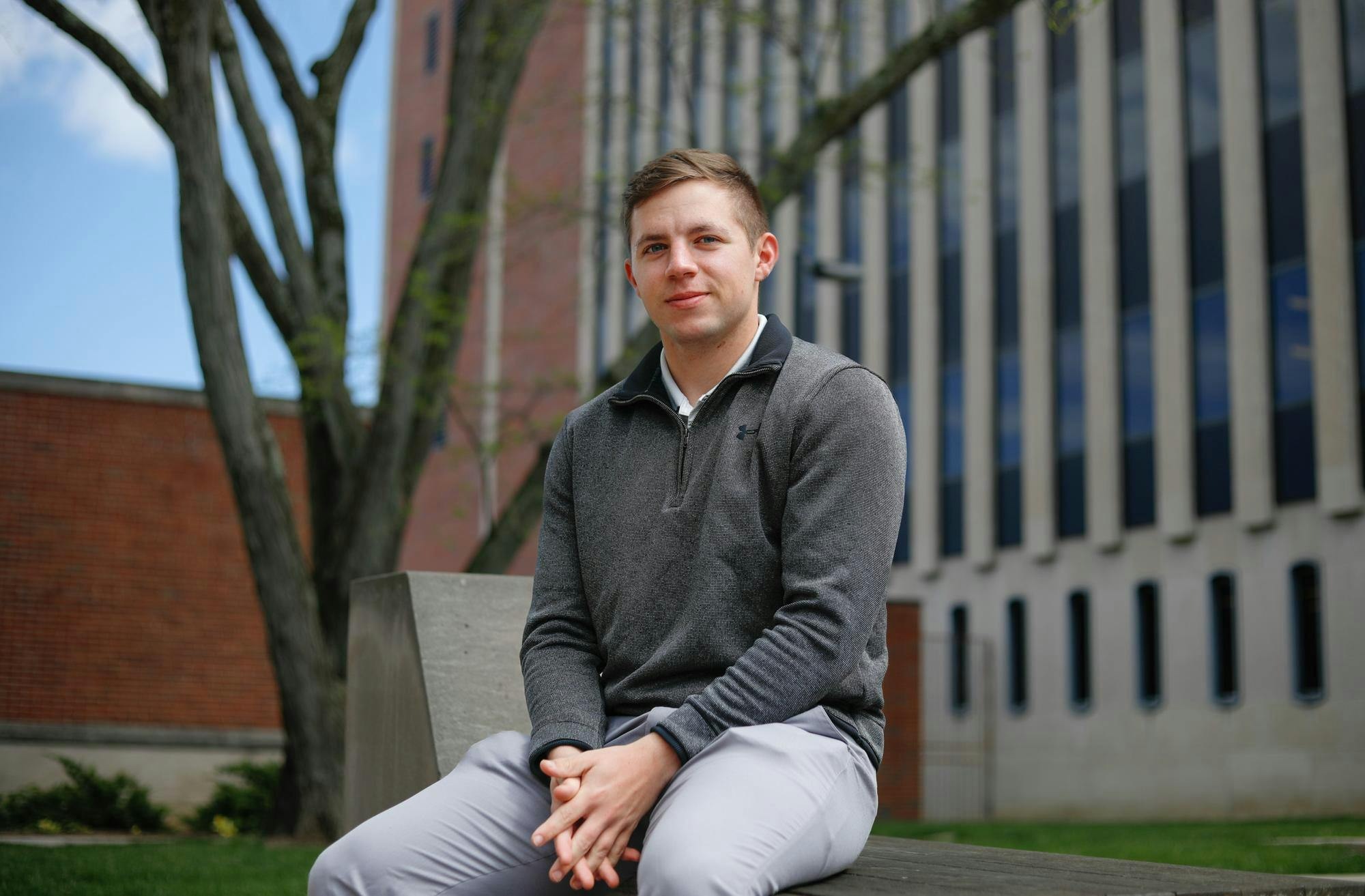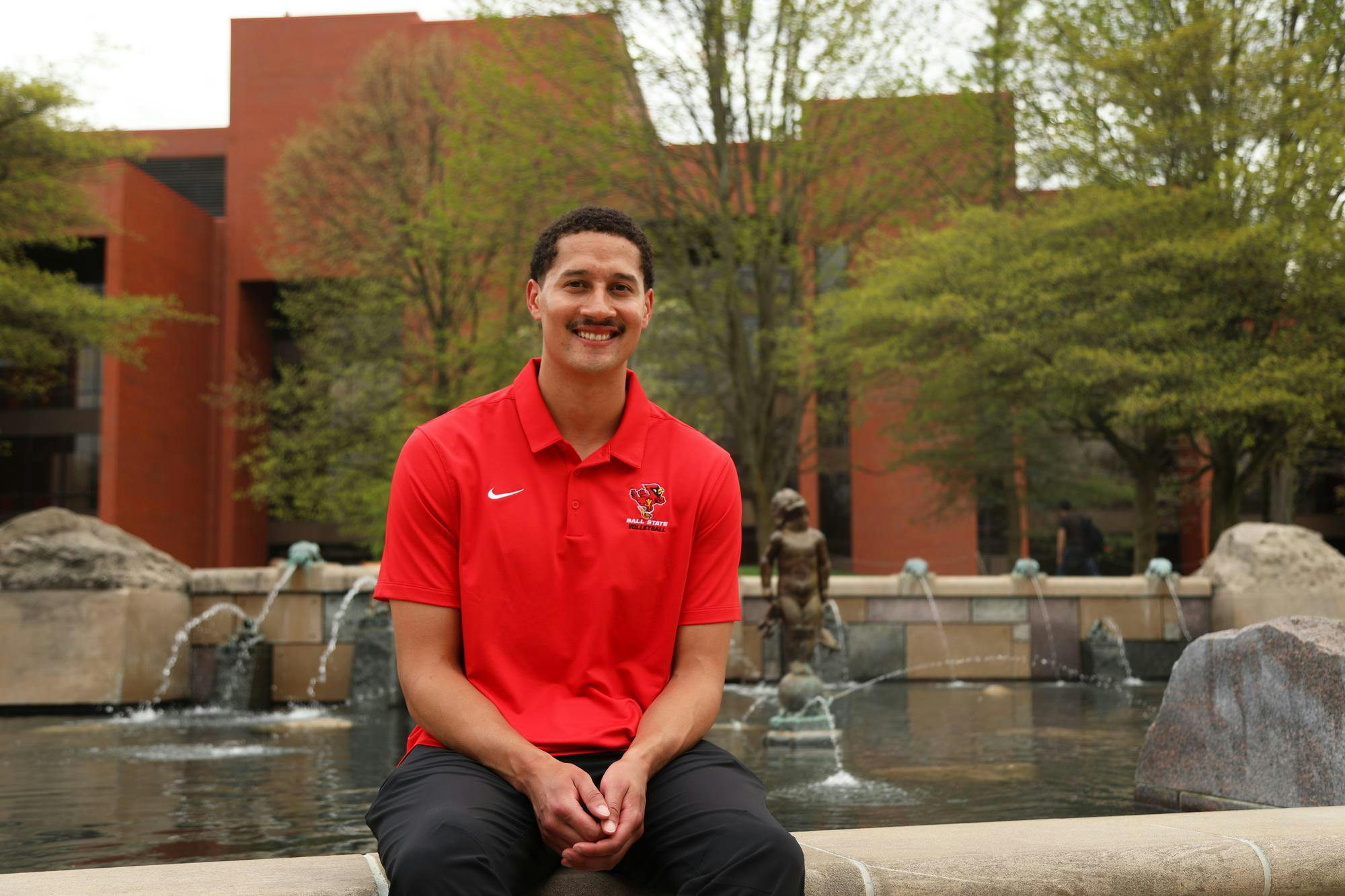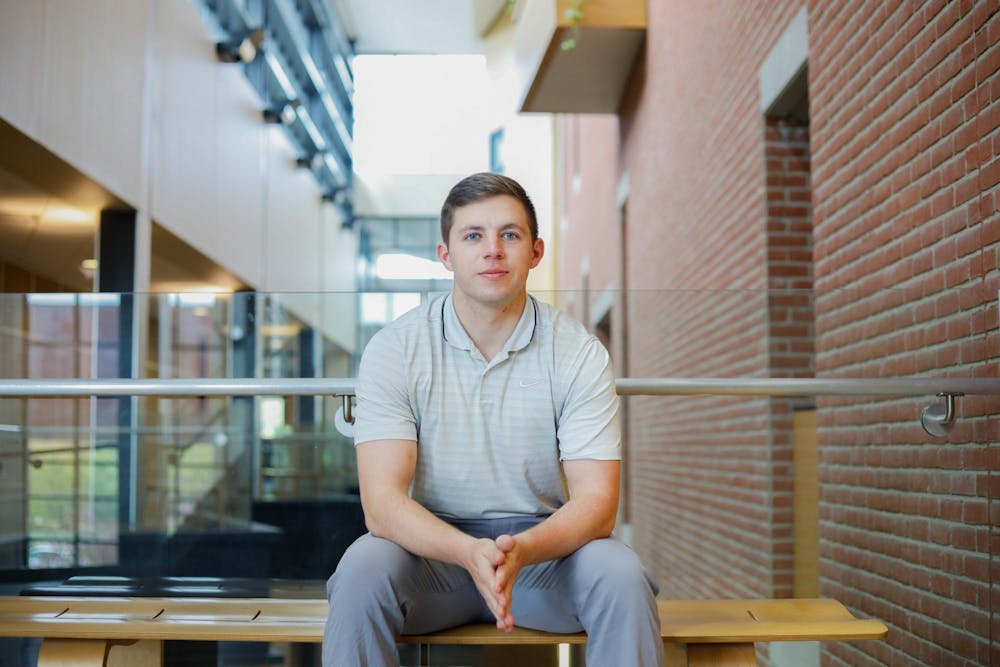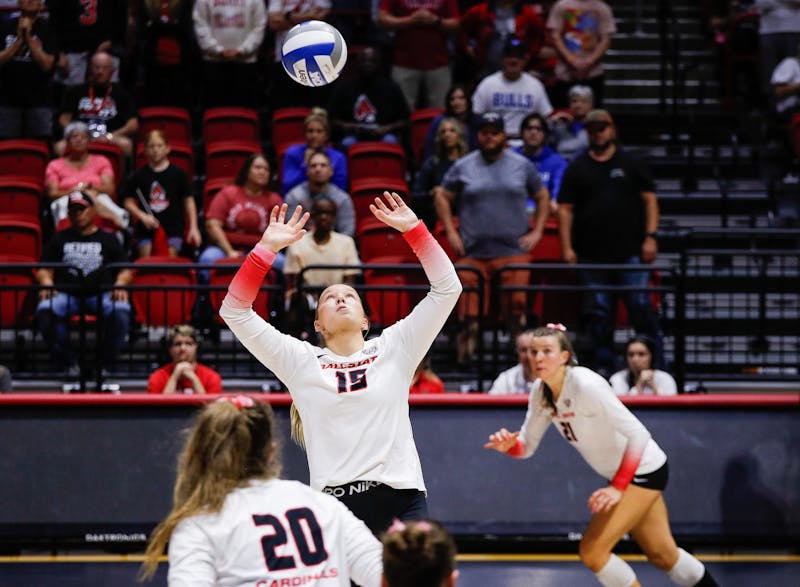Before sunrise, while most of Ball State University’s campus remains still and quiet, a few early risers start their day to fulfill other commitments: a full-time job, missing a class to care for a sick kid or simply being in a completely new environment. There are many paths students take, and varying experiences bring diverse challenges.
Graduation is a time for celebration, especially for those who had adverse experiences or complicating factors throughout their educational journeys.
Members of Ball State’s Reserve Officers’ Training Corps (ROTC) program have obligations to their classes and school like other students, but there are additional responsibilities in addition to academics.
Fourth-year computer information systems major Nick Combs is heading to Fort Sill, Oklahoma, in October. He’s starting his four-year contract as an active-duty officer following graduation.
He describes his added responsibilities as the equivalent of having a full-time job, but during his four years in ROTC, he has found ways to continue success in his classes and the training program.
“It’s mainly been: keep either the edge on my grades to make sure I’m working ahead, and staying ahead on them, or communicating with those in the program, such as our leadership,” Combs said.
Another fourth-year, Marshall Hargrave, is a computer information technology major and a third-year member of the training corps. After graduation this spring, he will be commissioned as an officer in the Indiana National Guard.

ROTC members like Combs and Hargrave haven’t had a lot of free time during their college years. Those in the program wake up around 5 a.m. for a workout “before campus is even up and running,” Combs said. They also have a field training exercise each semester, as well as other meetings and classes weekly.
“I feel like the work ethic you have to have in ROTC is much different than a normal college student because you have to wake up at 5 every day. It just teaches you discipline,” Hargrave said.
Comb’s advice for students considering ROTC is to go for it. Even if it’s only the first one or two years, it’s a learning experience.
“Dipping their toes in the water, it will end up being either a really good growing experience because we’ll get to find something and be able to try it and decide if you do or don’t like it,” Combs said. “It’s a really good way to build into a career.”
Those graduating from Ball State’s ROTC program aren’t the only Cardinals who’ve earned their degree through more unconventional circumstances.

Rodney Wallace is a fourth-year general studies major minoring in business and management who transferred from Lindenwood University.
“By studying at two different universities, I got an opportunity that most students don’t get … learning from a wide selection of professors and experiencing different styles of teaching,” Wallace said via email. “This exposure really broadened my academic perspective. Ultimately, transferring has made me a more well-rounded student.”
Wallace was slightly nervous about his move to Ball State and how much the transfer would “pay off,” but he quickly built relationships through organizations and as a member of the men’s volleyball team.
“My previous school was just 20 minutes away from where I grew up,” Wallace said. “Moving to a university far from home meant stepping out of my comfort zone and facing some unknown challenges.”
Wallace said despite his initial uncertainties before coming to Indiana, he is happy to earn his degree at Ball State.

Another graduating Cardinal following a non-traditional path is fourth-year social work major Hannah Hairfield. Being born and raised in Muncie, her current role as a student at Ball State is something she has dreamed of since she was young.
Finally achieving that dream, the 34-year-old has a different perspective than most of her classmates. But, her being slightly older than your average college student isn’t the only factor diversifying her college experience: she’s also a married mom of four.
Hairfield gave birth to her first child when she was 20 and continued growing her family from there. Today, her kids are 14, 12, 8 and nearly 2, so her hands are full balancing familial obligations and academics.
Despite her additional responsibilities, Hairfield has made the most of her time as an undergraduate at Ball State and made the balancing act work for her. She was recently accepted into the social work master’s program and plans to continue her education in fall 2025.
“I have a lot that goes on at home,” Hairfield said. “I don’t have a lot of free time … my free time is school.”
Only 26 percent of college students have to find a way to balance school, work and children, according to the Institute for Women’s Policy Research, making parenthood on college campuses an experience not many can relate to.
While Hairfield warned finding the balance between family and school isn’t always easy, she said the payoff is “definitely worth it” in the end.
“It’s never too late. You don’t always figure out what you want to do right out of high school. Sometimes it takes some life under your belt before you really know what you want to do,” Hairfield said. “If you really want to do it, you can do it.”
Contact Ella Howell with comments at ella.howell@bsu.edu.
Lifestyles Editor Hannah Amos contributed to this article.





The Daily News welcomes thoughtful discussion on all of our stories, but please keep comments civil and on-topic. Read our full guidelines here.